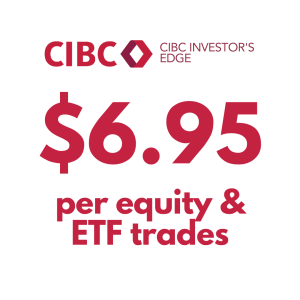
Income is a critical aspect of financial stability and success. Without income, it would be a challenge to achieve financial goals. There are countless ways to earn income, but some are more common than others. In this blog post, we will explore four different types of income. Each type of income has its own unique benefits and drawbacks. It’s important to understand them all before making any decisions about your financial future. We’ll also discuss how each type of income can be taxed, so you can make the most informed choices for your situation.

Table of contents
Why do the types of income matter?
The types of income you earn matter just as much as the amount. That’s because different types of income are taxed in a specific way. Diversifying your income streams can help reduce your overall tax burden. In addition, having various income streams can provide greater financial stability so you’re not reliant on one source.
For example, if you earn a salary from your job, that income will be taxed at your marginal tax rate. Plus, CPP and EI contributions are taken off your salary. However, if you also have interest income from a savings account, that will be taxed at a lower rate. If you have dividends from investments, those may be taxed lower as well.
By understanding the tax implications of different types of income, you can strategically plan your finances to minimize your tax liability. Additionally, diversifying your income streams can help protect you in case one source dries up. For instance, if you get laid off, but still have steady investment income, job loss won’t be so devastating.
So whether you’re looking to reduce your taxes or protect yourself financially, it’s important to understand the role that different types of income can play in your personal finances.
4 types of income
Generally speaking, there are 4 types of income in Canada. These categories divvy income types based on how they are taxed. Let’s explore what they are below.
General income
General income is defined as earnings received from employment, self-employment, pensions, and other social benefits. In other words, this kind of income is generated by working and providing labour. However, in some cases, individuals may be eligible for social benefits due to their specific circumstances, such as having a disability or incurring the misfortune of having a death in the family.
In most cases, employment is the largest source of income for individuals and families. Wages and salaries make up the majority of employment income, though some may also receive income from tips or commissions. Pensions are another common source of income, particularly for older adults. Social benefits can provide income for individuals who are unable to work or who are facing financial difficulties.
Dividend income
A dividend is a payment to stockholders who have purchased equity in the company. The majority of corporations’ earnings are kept as retained earnings, which may be spent on future and continuing business activity. However, the remainder is frequently paid out to shareholders as a dividend.
The board of directors of a firm has the authority to pay dividends at a certain time interval, such as monthly, quarterly, semiannually, or annually. Alternatively, firms have the option of issuing nonrecurring special dividends separately or in addition to their regular dividend.
In Canada, dividends are considered either non eligible or eligible. Each has differing tax implications, but generally dividends are taxed at a more favourable rate than employment income. In addition, taxpayers may be eligible for the dividend tax credit.
Related Reading: Best Monthly Dividend Stocks in Canada for 2022
Investment income
Investment income is defined as interest payments, stock and other capital gains, and any additional profit made through an investment vehicle. Technically, dividends are considered investment income as well, but since they are taxed differently, they’re excluded here.
All forms of investment income are included in this group, including interest earned on bank accounts, capital gains on the sale of assets, and gold coin sales profits. Long-term investment earnings are subject to various, and frequently greater, tax treatment depending on the country and region. Often, investment income is earned passively because you purchase an asset and it earns money without active attention or efforts from the owner.
Most people earn the majority their net income each year through regular employment revenue. However, disciplined savings and investment in the financial markets can result in significant long-term investment returns. Since the ability to invest in assets and other investments is considered a luxury, this type of income is taxed at a higher rate.
CIBC Investor’s Line Offer
Up to $6.95 per online stock or ETF trade. Plus, there’s no minimum account balance.
Miscellaneous income exempt from tax
There are a variety of sources of income that are exempt from taxation in Canada. These include gambling winnings, life insurance proceeds, lottery winnings, gifts and inheritances, and certain types of pensions.
While the tax treatment of these types of income may vary from one country to another, they generally receive preferential tax treatment in recognition of their unique nature.
Gambling and lottery winnings, for example, are typically exempt from taxation because they are considered to be luck-based rather than earned income. Life insurance proceeds are also typically exempt from taxation, as they are intended to provide financial security for loved ones in the event of the policyholder’s death. Similarly, certain types of pensions are often exempt from taxation if the nature in which they are received is sensitive and related to trauma. Finally, gifts and inheritances are normally exempt from tax as well.
While these types of income are normally exempt from tax, you may want to consult a professional to be sure. In addition, this kind of income is usually unpredictable so don’t bank on being able to earn it!
Other ways to classify income
It is helpful to classify income based on how it’s taxed so you can manage your tax liability. However, there are many other ways to assess income. Let’s take a look below.
Active income
Active income is defined as money earned for performing a service or producing a product. In other words, active income is derived from any activity where you must actively work to produce income. Common sources of active income include wages, tips, salaries, commissions, and business profits. This type of income is generated through the exchange of time or work for money. It is considered to be “earned” because it is directly linked to an individual’s provision of labor or services.
Passive income
Passive income is a type of earning that does not require active work on the part of the earner. Instead, passive income is derived from sources that provide income even when the earner is not actively involved, such as dividends or capital gains.
While passive income can provide a desirable source of earnings, it is important to be aware of the tax implications associated with this type of income. In general, passive income is taxed more heavily since it is a luxury to have this kind of income.
As with any type of earnings, it is important to consult with a tax professional to ensure that you are complying with all applicable tax laws.
Related Reading: How to Invest in Index Funds in Canada
Residual income
Residual income is the money that continues to flow after an initial investment of time and resources has been completed. Because it does not require active work to generate income, residual income is often considered passive income. Building residual income over time can be a great way to gain financial security and stability.
Examples of residuals include artist royalties, rental payments, interest earnings, and dividend checks. For those with high initial costs or illness/injury preventing gainful employment, residual income can provide a significant source supplementing their primary source of income. For instance, an individual who buys a rental house may still collect rent payments even if they can’t live on the property. Also, an author could keep getting royalties for their book long after it has been published.
Inherited income
An individual’s assets are referred to as an inheritance if they are bequeathed to their loved ones after they pass away. Cash, investments, such as stocks or bonds, and other assets such as jewelry, automobiles, artworks, antiques, and real estate can all be included in an inheritance.
The value of a bequest can vary from a few thousand dollars to several million. In most countries, inheritance assets are subject to inheritance taxes, which impose tax liabilities on beneficiaries. The rates of an inheritance tax (also known as a “death duty” or “the last twist of the taxman’s knife”) are determined by a variety of criteria, including the beneficiary’s state of residence, the size of the bequest, and the beneficiary’s relationship to the decedent. Fortunately, in Canada, inheritance taxes do not apply to the recipient of an estate. The final taxes are handled within the estate first, then passed on to beneficiaries.
There is a difference between an inheritance tax and an estate tax. An estate tax is levied on the transfer of assets from a deceased person to their heirs, but it does not apply to assets left to a spouse or federally recognized charities in most cases.
Understanding your income
Your income is the money that you earn from employment, investments, or other sources. It is important to understand your income so that you can budget your expenses and save for the future.
There are many different ways to increase your income, such as working overtime, buying stocks or real estate, or starting a business. However, it is also important to diversify your income sources so that you are not relying on just one source of income. For example, if you are employed, you may want to consider investing in stocks or real estate so that you have additional streams of income and can prepare for retirement. By understanding your income and diversifying your sources of income, you can build wealth and achieve financial security.

